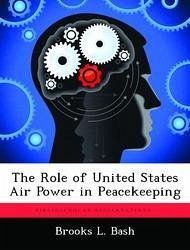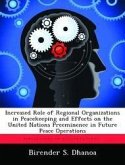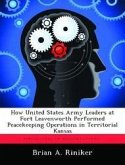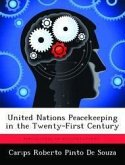In the aftermath of the cold war, the world is witnessing a dramatic increase inregional conflict and associated United Nations peacekeeping operations. Recognizing this trend and the fact that peacekeeping can serve US national security interests, US policymakers have earmarked military peacekeeping involvement, theemployment of air power will be a natural consideration. Unfortunately, there islittle practical or doctrinal guidance outlining the benefits and limitations of airpower within the peacekeeping paradigm. To remedy this situation, this study firstprovides a general discussion of peacekeeping and constructs a comprehensiveframework to categorize and analyze the role of air power in peacekeeping. Next, several recommendations are presented concerning command and control, doctrine,and organizational issues. In the end, this study concludes that the role of air powerin peacekeeping is primarily auxiliary. Nevertheless, among the potential US contributions to UN peacekeeping, air power may be the best medium as it offers capabilities different from those currently available to UN forces. Moreover, the use of airpower, as opposed to ground peacekeeping forces, will reduce the risk to Americanlives. Finally, the expanded use of air power in UN peacekeeping presents an opportunity to demonstrate US leadership and resolve while avoiding the perception ofdominating the show.
Hinweis: Dieser Artikel kann nur an eine deutsche Lieferadresse ausgeliefert werden.
Hinweis: Dieser Artikel kann nur an eine deutsche Lieferadresse ausgeliefert werden.








